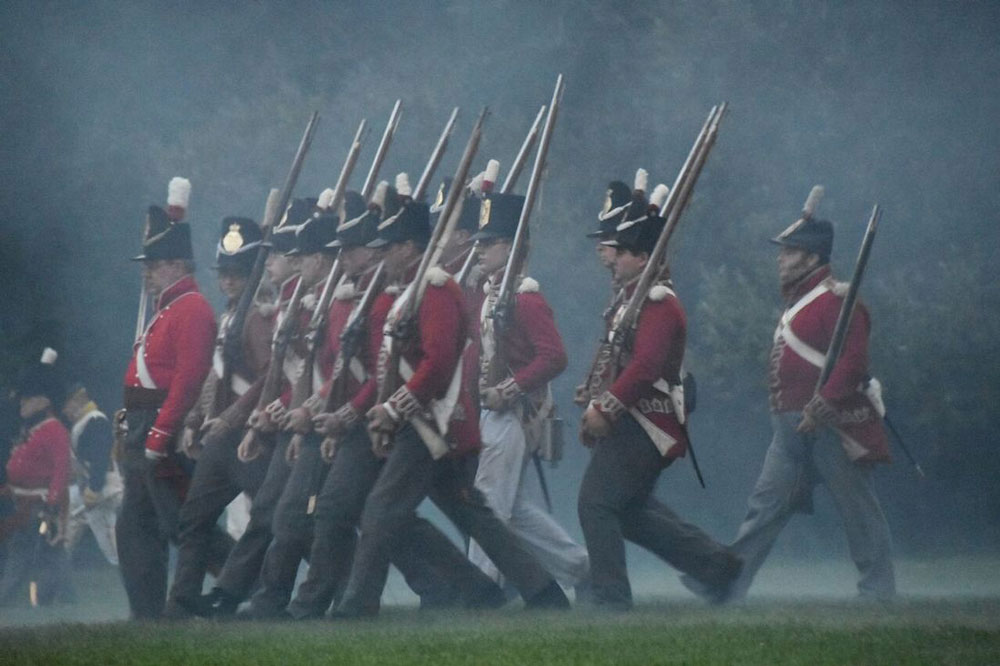Sinking Morale: The Fort Erie Sortie
If the morale among de Watteville soldiers had reached a low ebb after the Battle of Fort Erie in August 1814, it sank lower still in September.

Re-enactor soldiers in the rain, Fort Erie. Sarah Brown, Incorporated Militia of Upper Canada for the Forty-first Regiment, fortyfirst.org
Drummond decided to abandon the Fort Erie siege after the heavy losses of the battle. The men had settled in to wait for the wagons to take them to winter quarters at Fort George, some 50 km away at Niagara-on-the-Lake. While the men waited, constant rain and short rations made their condition worse.
On September 17, the Americans attempted a raid out from the fort, attacking without warning in the rain. The de Watteville men were on picket duty outside the camp and were caught by surprise. With help from other British soldiers, they drove off the Americans who retreated back into the fort after damaging the cannon in the batteries. Fort Erie was their last battle in the War of 1812.
With winter looming, the Americans abandoned Fort Erie in November. The de Wattevilles retired to Fort George. That winter the weather was so cold and miserable that the men ventured out only to search for firewood. They longed for home, family, and permanent peace.
…the cold, which easily penetrates the miserable cottages that we have built. Each faculty of the body and mind is frozen in those wretched regions. There only remains the savage desire to nourish and keep oneself warm. Each person seeks the fire, and when he finds it, he only quits it for the most pressing needs of nature.
– Lt. DiCenta, de Watteville Regiment


